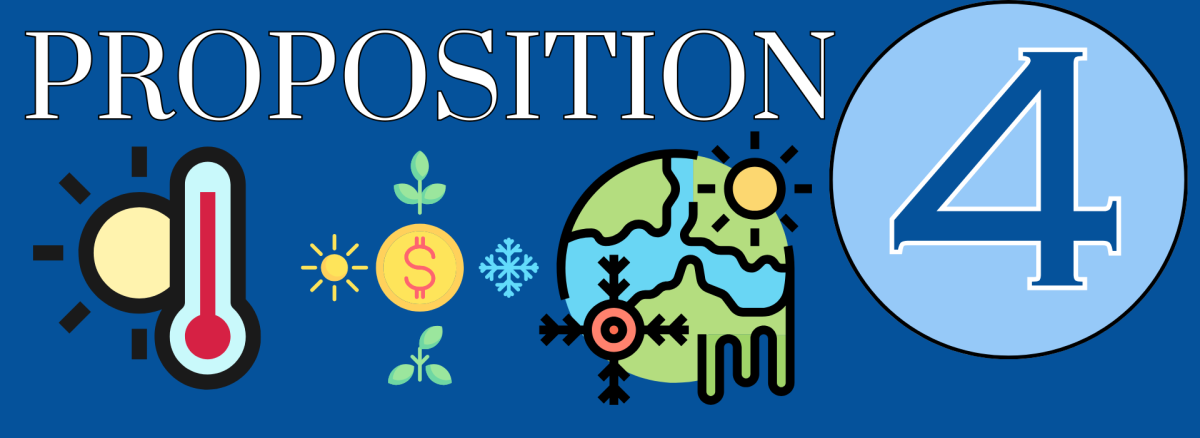Proposition 4 on California’s Nov. 5 general election ballot authorizes the sale of a $10 billion state bond for the purpose of funding programs aimed at conserving natural resources and responding to climate change.
The state will distribute the majority of the money raised from the sale among local governments, Native American tribes, non-profit organizations and businesses in the form of grants and loans. The rest of the funds will be made available to state agencies for related state-run activities.
California taxpayers will repay the bond through the state General Fund at a rate of about $400 million annually over a 40-year period, making the total amount repaid $16 billion. This includes $6 billion in interest. The repayments will be drawn from the state’s general fund, rather than from a direct tax increase, with $400 million representing 0.5% of the general fund’s budget, itself derived from state tax revenues. The estimated cost per Californian divided evenly among the current population is $410 over the full term.
Funds will be allocated for activities across eight broad categories: drought, flood and water supply (3.8 billion), forest health and wildfire prevention (1.5 billion), sea-level rise and coastal areas (1.2 billion), land conservation and habitat restoration (1.2 billion), energy infrastructure (850 million), parks (700 million), extreme heat (450 million), and farms and agriculture (300 million).
Activities identified within those categories range from conservation land acquisitions and hard infrastructure projects such as water treatment and recycling facilities, wildlife corridors and soil restoration efforts; to training and education, unemployment mitigation, and soft infrastructure such as pop-tents, port-a-potties and point-of-sale systems for farmers markets.
Other spending stipulations include allocations for low-income communities and tribal lands that may be disproportionately affected by climate change. Preference will be given to socially disadvantaged grant applicants.
Supporters of the proposition include Clean Water Action, National Wildlife Fund and other environmental groups, alongside California Professional Firefighters, California Labor Federation and the Sacramento Bee. These organizations are among others that have long lobbied for increased funding to tackle climate change related issues.
The opposition to Proposition 4 includes senate GOP leader Brian Jones, assemblyman Jim Patterson, and the Howard Jarvis Tax Association who argue that bonds burden taxpayers disproportionately, and the planned expenditures are unproven to address climate concerns.
If Proposition 4 is rejected, natural resource preservation and climate change mitigation initiatives will continue to be funded by regular state and local budgets.
If authorized, funds raised from the bond may either broaden state and local efforts to protect natural resources and mitigate the effects of climate change or free up for other needs state and local funds that would otherwise have been spent on such efforts without this proposition.
However, bonds are the most expensive way for governments to raise money and are usually reserved for wars or large hard infrastructure projects that will outlast the debt.
Much of the expenditure in this proposal is for soft infrastructure and activities that will not be seen by those Californians repaying the debt in the latter of the next four decades, with speculative, if not spurious, influence on future climate related outcomes.





